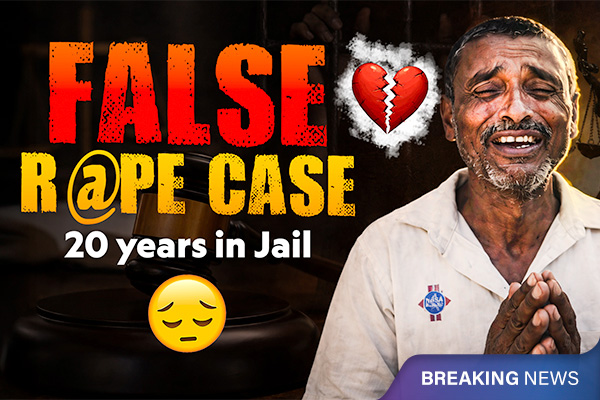Ayushman Bharat: Hospitals Waiting for Rs 1.2 Lakh Crore From Govt
India’s flagship health scheme Ayushman Bharat faces collapse in 2025, with ?1.21 lakh crore unpaid dues, hospitals suspending services, and poor patients left without care.
The Narendra Modi government’s flagship health insurance programme, Ayushman Bharat – Pradhan Mantri Jan Arogya Yojana (PM-JAY), which was launched seven years ago with the promise of providing free healthcare to India’s poorest families, is now in the middle of a deep crisis. The scheme, once hailed as the world’s largest government-funded health insurance project, is struggling due to severe funding shortages, massive unpaid dues, and operational failures. According to the Ministry of Health, the Central Government alone owes private hospitals more than ?1.21 lakh crore for treatments that have already been provided, and over 63 lakh claims filed by patients remain stuck in the system without settlement.
This huge financial backlog has pushed private hospitals across many states into an impossible position—either continue treating patients without being reimbursed, or suspend services altogether. The situation has become particularly dire in Haryana, where on 7 August 2025, over 650 private hospitals suspended Ayushman Bharat services due to unpaid bills amounting to nearly ?500 crore. This single move has left about 1.8 crore people—almost 60% of Haryana’s population who depend on the scheme—without private healthcare access. Similar problems are playing out nationwide: in Manipur, 43 hospitals are owed around ?80 crore; in Jammu & Kashmir, hundreds of crores remain unpaid even as only 130 empanelled private hospitals are available for patients; in Rajasthan, more than ?200 crore is overdue. Delhi, which only joined the scheme in April 2025 after the BJP won state elections, has seen very poor participation, with only 137 out of 1,200 private hospitals signing up, while major chains like Fortis, Apollo, Max, Sir Ganga Ram, and BLK have all refused to join. They argue that the government’s reimbursement rates cover just 30–40% of the actual treatment costs, payments are delayed by months, and in many cases dues from older schemes like the Delhi Arogya Kosh are still pending, with some hospitals waiting on ?60 lakh or more.
The human cost of this crisis is being felt most sharply by poor families, who were supposed to be the primary beneficiaries. Many patients with valid Ayushman cards are being turned away by private hospitals, forcing them into overcrowded government hospitals that are already short of doctors, staff, and equipment. For example, in Haryana, government hospital patient loads have jumped from 900–1200 daily cases to over 1,500 per day, overwhelming the system. Ordinary citizens like Dharmveer, a factory worker from Faridabad, have been forced to pay for treatments from their own pockets despite being eligible for free care. With surgeries delayed and lifesaving treatments denied, many families are now borrowing from moneylenders at high interest rates—ironically, the very financial hardship Ayushman Bharat was designed to prevent.
Experts and hospital associations blame the crisis on systemic flaws: severe budget mismatches, long payment delays, arbitrary deductions, and poor planning. In Haryana, for instance, while hospitals say they need around ?2,000 crore to run the scheme effectively, the government only allocated ?700 crore for 2024–25, even as coverage was dramatically expanded under the Chirayu Yojana, raising beneficiaries from 40 lakh to 1.4 crore people. At the national level, the 2025–26 Union Budget earmarked just ?9,406 crore, far below the estimated ?3 lakh crore that would be required if even 10% of India’s 600 million eligible citizens availed treatment in a single year. Meanwhile, fraud checks and audits—though important—have slowed payments further. Over 1,114 hospitals have been de-empanelled, 1,504 fined ?122 crore, and 549 suspended for alleged violations, but hospitals complain that even genuine claims are being rejected or unfairly cut by as much as 70–80%, often without explanation.
While the Haryana government has released ?245 crore of pending dues under pressure, hospitals insist this is far too little and far too late after months of unpaid bills. The Indian Medical Association (IMA) and the Association of Healthcare Providers of India (AHPI) have both backed hospitals in their decision to suspend services, calling it a “necessary and justified” step.
Going forward, health experts outline a clear set of urgent reforms if Ayushman Bharat is to survive. First, both Central and state governments need to increase funding dramatically and ensure time-bound reimbursements within 15–30 days, possibly with interest on delayed bills. Second, treatment package rates must be revised upward to reflect actual costs so that hospitals do not suffer losses. Third, the government must invest in strengthening public hospitals instead of depending almost entirely on private facilities. Unless these steps are taken quickly, the future of Ayushman Bharat is in jeopardy. What was envisioned as a transformative step toward universal healthcare in India risks becoming a hollow promise.







